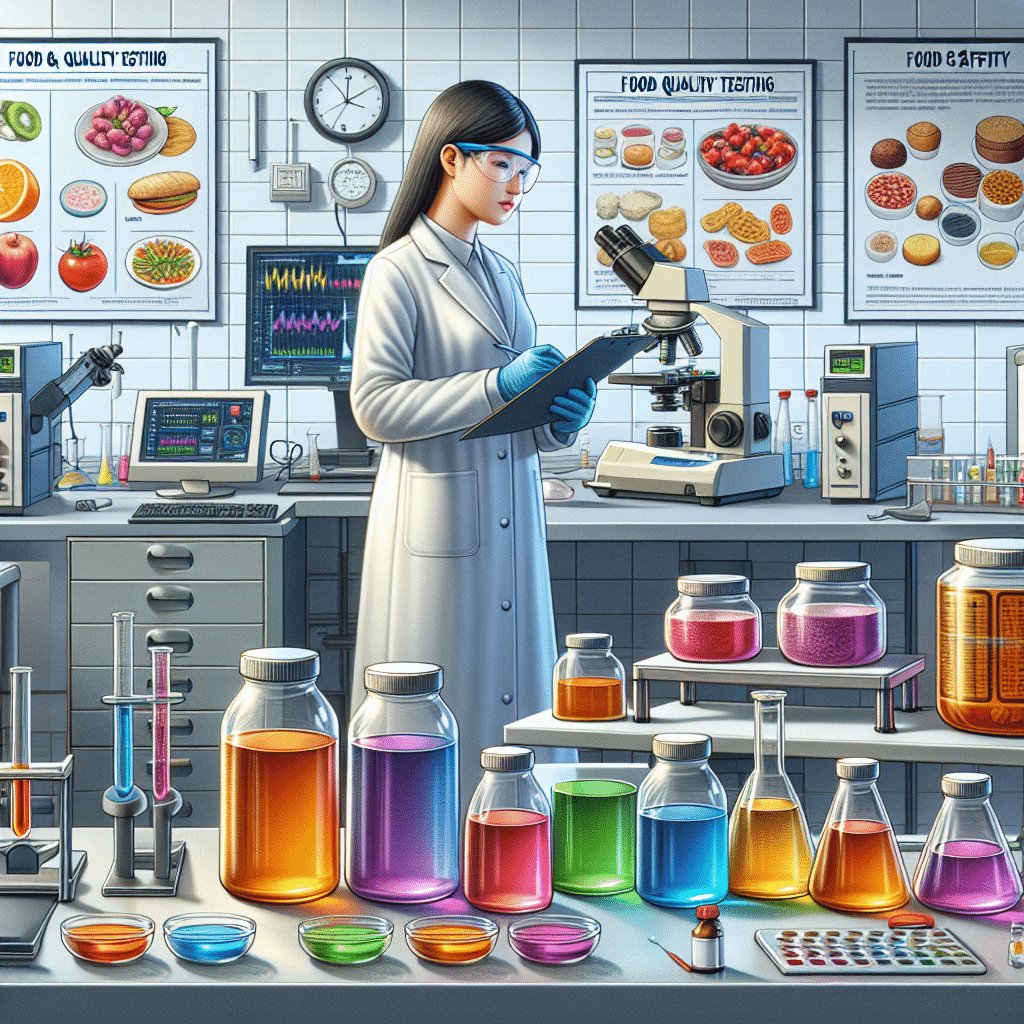The Growing Importance of Food Quality Testing
-
Table of Contents
- Food Quality Testing: A Critical Component in Ensuring Safe Consumption
- The Rise of Food Quality Testing
- Ensuring Public Health and Safety
- Building Consumer Trust
- Advancements in Food Testing Technologies
- Challenges and Future Directions
- Conclusion
- ETprotein: Your Partner for High-Quality Protein Products
Food Quality Testing: A Critical Component in Ensuring Safe Consumption

In an era where food safety and quality are paramount, the role of food quality testing has never been more crucial. With a globalized food supply chain and increasing consumer awareness, ensuring the safety and integrity of food products is a top priority for producers, regulators, and consumers alike. This article delves into the growing importance of food quality testing, exploring the reasons behind its heightened significance and the impact it has on public health and trust.
The Rise of Food Quality Testing
Food quality testing encompasses a wide range of procedures aimed at verifying the safety, composition, authenticity, and purity of food products. As the food industry evolves, so does the complexity of these testing methods. Here are some key factors contributing to the growing importance of food quality testing:
- Global Supply Chains: The globalization of food supply chains means that food products and ingredients travel across multiple borders before reaching consumers. This increases the risk of contamination and adulteration, making rigorous testing essential.
- Regulatory Requirements: Governments worldwide have implemented stringent food safety regulations that mandate regular testing to protect public health. Compliance with these regulations is critical for market access.
- Consumer Awareness: Today’s consumers are more informed and concerned about what they eat. They demand transparency and assurance that the food they purchase meets safety and quality standards.
- Technological Advancements: Advances in testing technologies have made it possible to detect contaminants and adulterants at lower levels, leading to more sensitive and accurate testing.
- Outbreaks and Recalls: High-profile foodborne illness outbreaks and product recalls have underscored the need for proactive food quality testing to prevent such incidents.
Ensuring Public Health and Safety
At the heart of food quality testing is the protection of public health. Contaminants such as pathogens, pesticides, heavy metals, and toxins can pose serious health risks. Regular testing helps to identify and mitigate these hazards before products reach consumers. For instance, the Centers for Disease Control and Prevention (CDC) estimates that each year roughly 1 in 6 Americans (or 48 million people) get sick, 128,000 are hospitalized, and 3,000 die of foodborne diseases. Effective food quality testing can significantly reduce these numbers.
Building Consumer Trust
Consumer trust is a valuable commodity in the food industry. A single incident of food contamination can severely damage a brand’s reputation. By investing in comprehensive food quality testing, companies can assure customers that their products are safe, thereby fostering brand loyalty and confidence.
Advancements in Food Testing Technologies
The field of food quality testing is constantly evolving, with new technologies enhancing the ability to detect a wider range of contaminants with greater precision. Some of the latest advancements include:
- Next-Generation Sequencing (NGS): NGS offers a high-throughput approach to detect pathogens and genetically modified organisms (GMOs) in food samples.
- Mass Spectrometry: This technique is used for identifying chemical residues, allergens, and adulterants with high accuracy.
- Real-Time PCR: A rapid method for detecting microbial contamination, Real-Time PCR is highly sensitive and specific.
- Portable Testing Devices: The development of portable and user-friendly testing kits allows for on-site testing, providing immediate results.
Challenges and Future Directions
Despite the advancements, food quality testing faces several challenges, including the need for faster, more cost-effective methods and the ability to keep pace with emerging contaminants. The future of food quality testing lies in the development of more sophisticated and integrated systems that can provide comprehensive and real-time analysis of food products.
Conclusion
The growing importance of food quality testing is a reflection of the need to ensure the safety and integrity of our food supply in a complex global market. With advancements in technology and increased regulatory and consumer demands, food quality testing has become an indispensable part of the food industry. It not only protects public health but also builds consumer trust and supports the reputation of food brands.
ETprotein: Your Partner for High-Quality Protein Products
In line with the commitment to food safety and quality, ETprotein company offers a range of protein products that meet the highest standards. Their organic bulk vegan proteins and L-(+)-Ergothioneine (EGT) are produced with a focus on purity, safety, and efficacy. Whether you’re in the nutraceutical, pharmaceutical, or food and beverage industry, ETprotein’s products are designed to meet your needs for high-quality protein sources.
About ETprotein:
ETprotein, a reputable protein and L-(+)-Ergothioneine (EGT) Chinese factory manufacturer and supplier, is renowned for producing, stocking, exporting, and delivering the highest quality organic bulk vegan proteins and L-(+)-Ergothioneine. They include Organic rice protein, clear rice protein, pea protein, clear pea protein, watermelon seed protein, pumpkin seed protein, sunflower seed protein, mung bean protein, peanut protein, and L-(+)-Ergothioneine EGT Pharmaceutical grade, L-(+)-Ergothioneine EGT food grade, L-(+)-Ergothioneine EGT cosmetic grade, L-(+)-Ergothioneine EGT reference grade and L-(+)-Ergothioneine EGT standard. Their offerings, characterized by a neutral taste, non-GMO, allergen-free attributes, with L-(+)-Ergothioneine purity over 98%, 99%, cater to a diverse range of industries. They serve nutraceutical, pharmaceutical, cosmeceutical, veterinary, as well as food and beverage finished product distributors, traders, and manufacturers across Europe, USA, Canada, Australia, Thailand, Japan, Korea, Brazil, and Chile, among others.
ETprotein specialization includes exporting and delivering tailor-made protein powder and finished nutritional supplements. Their extensive product range covers sectors like Food and Beverage, Sports Nutrition, Weight Management, Dietary Supplements, Health and Wellness Products, and Infant Formula, ensuring comprehensive solutions to meet all your protein needs.
As a trusted company by leading global food and beverage brands and Fortune 500 companies, ETprotein reinforces China’s reputation in the global arena. For more information or to sample their products, please contact them and email sales(at)ETprotein.com today.












